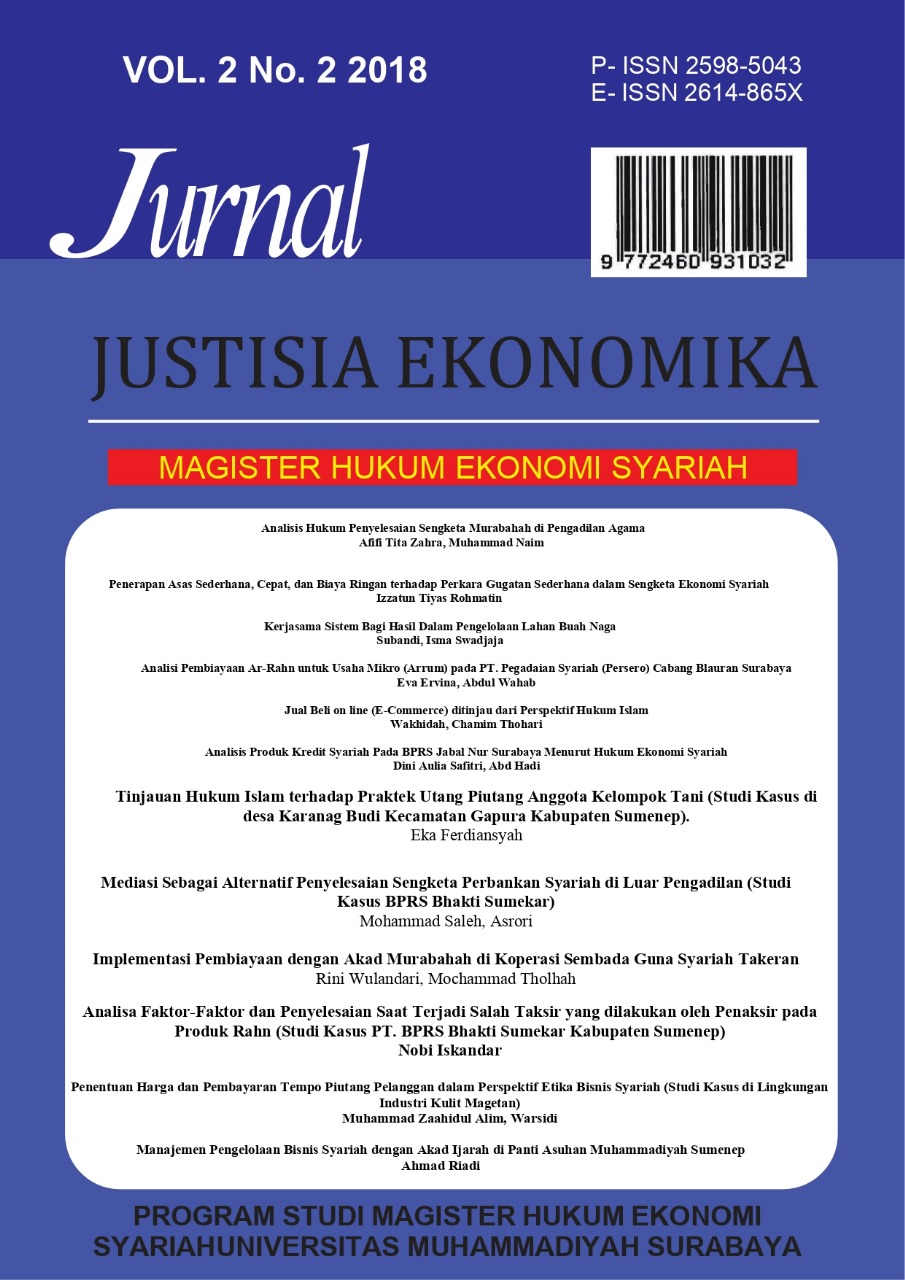Analisis Hukum Penyelesaian Sengketa Murabahah di Pengadilan Agama
DOI:
https://doi.org/10.30651/justeko.v2i2.2476Abstract
It is mentioned in the laws article 49 No 3 2006 that one of religious court’s duty is to solve murabahah dispute. However, a case related to murabahah dispute number 2860/Pdt.G/2013/PA.Mr. which is submitted to MojokertoReligius Court was rejected by judges. This research attempt to analyse this (1) What is judges consideration in charge of settling murabahah dispute in a verdict number 2860/Pdt.G/2013/Pa.Mr? (2) What factors affecting the judges verdict number 2860/Pdt.G/2013/Pa.Mr? (3) How do the murabahah financing products eligible with religious advice DSN Indonesian Ulamas Council in terms of murabahah financing? This research use case study. The primary data was taken in Mojokerto Religious Court with the case number 2860/ Pdt.G/2013/Pa.Mr while the secondary data based on law books and journals which is related to sharia economy. Data was collected by using interviews and documentation.
This research conclude this (1) The judges decided to not accept the case number 2860/Pdt.G/2013/Pa.Mr because the murabahah agreement which contain dispute settlement should be resolved through the arbitration institution (BASYARNAS). (2) Factors that influence judges verdict was law and rules that regulate arbitration which is consist of laws No 1 21/2008 on Sharia Banking article 55, Laws no 48 2009 about Judicial Power article 59, article 1338 the Book of Civil Law and article 21 (3) In addition, a case number 2860/pdt.g/2013/pa mr in form of loan capital was not in accordance with MUI teaching number 4/DSN-MUI/IV/2000 that govern murabahah only for purchase of goods.
Â
Keyword : murabahah, dispute settlement, religious court.
Â
Downloads
Published
How to Cite
Issue
Section
License
HAK CIPTA
Penulis yang mengirimkan artikel dalam jurnal Justisia Ekonomika harus memahami dan menyetujui persyaratan tentang hak cipta jurnal Justisia Ekonomika sebagai berikut:
1. Hak Cipta tulisan / artikel yang diterbitkan di jurnal Justisia Ekonomika otomatis menjadi hak pengelola jurnal atau publisher
2. Meskipun Hak Cipta atas tulisan yang telah diterbitkan di jurnal Justisia Ekonomika adalah menjadi haknya publisher, tetapi penulis masih mempunyai hak untuk : a). Penulis boleh meng-upload di repository kampus, b). Penulis boleh meng-upload di webnya sendiri, c). Penulis boleh meng-upload di google schoolar, orchid dan sinta
LISENSI
Lisensi atas tulisan / artikel yang diterbitkan di jurnal Justisia Ekonomika adalah menggunakan Creative Commons dengan atribusi CC-BY-NC 4.0






















